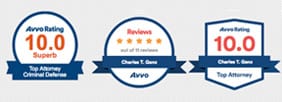Driving while drunk or under the influence of illegal drugs are not the only grounds for an impaired driving prosecution in Texas. Drivers can face legal consequences for driving under the influence of controlled or prescription drugs.
DWI
Motorists may be prosecuted for a drug DWI if they do not have normal use of their physical or mental abilities because they consumed a controlled substance, a drug, a combination of drugs or alcohol or any other substance. Driving while impaired by drugs is dangerous and may be severely punished.
The first type of DWI intoxication is where a motorist’s faculties are impaired to the extent that the driver is under the influence of drugs. Police usually make the decision to arrest a motorist by observing their behavior and conducting field sobriety tests during the vehicle stop.
Police may require a chemical test to determine whether motorists have drugs in their system and the amount, although this test does not show whether the driver is impaired. Refusal of this test for the first offense is punishable by a 180-day license suspension and a 2-year suspension for the second offense.
Impairing drugs
Heroin, methamphetamine, and other illegal drugs may be grounds for a DWI. Using prescription drugs may also lead to a DWI arrest if the driver is impaired. The most common drugs in Texas DWI cases include Xanax, opioids, alprazolam, Soma, Vicodin and Ambien.
Over-the-counter medications may also impair drivers. These include cold medicine, allergy medication and Tylenol PM. A DWI involving Tylenol has the same penalty as a heroin-related DWI.
Penalties
A driver’s first and second DWI convictions are misdemeanors. A first offense, a class B misdemeanor, is punishable by three to 180 days imprisonment, a fine of up to $2,000 and license suspension of up to 12 months. There is also a $3,000 surcharge to prevent driver’s license suspension.
A second DWI is a class A misdemeanor with a maximum sentence of up to 1 year imprisonment in a county facility, a fine of up to $4,500 and license suspension of up to 2 years. Convicted motorists may have to attend DWI school and install an ignition interlock device on all of their vehicles during their supervised probation or the term of their hardship license.
The third and fourth offenses are felonies. Penalties also increase if there is a passenger under 15 years old in the vehicle.
A DWI is a felony crime of intoxication assault if a person is seriously injured. If the injured person dies, the motorist may be charged with intoxication manslaughter. This crime is a first-degree felony if the motorist causes the death of a first responder.
DWI stops can be life-altering but an attorney can help protect your rights.







